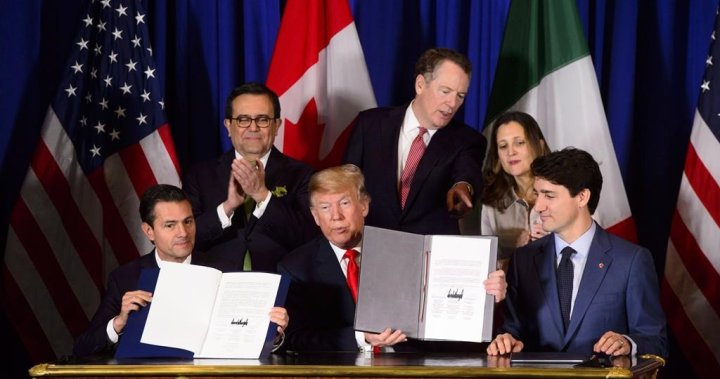Chrystia Freeland’s abrupt resignation as Canada’s Finance Minister has sent shockwaves through the political landscape, leaving Prime Minister Justin Trudeau grappling with a significant cabinet vacancy and renewed questions about his leadership. With just weeks remaining before Donald Trump’s return to the presidency, the loss of Freeland, a seasoned diplomat and key figure in navigating the often-turbulent Canada-U.S. relationship, presents a considerable challenge for the Liberal government. Freeland’s public resignation statement, which blindsided Trudeau’s office, added fuel to the fire, highlighting internal disagreements and raising concerns about the government’s preparedness for the economic and political challenges posed by a second Trump administration.
Freeland’s departure deprives the Liberals of a crucial asset in dealing with the complexities of Canada-U.S. relations. She played a central role in managing the relationship during Trump’s first term, skillfully navigating trade disputes, tariff threats, and the renegotiation of NAFTA. Her experience and expertise will be sorely missed as Canada braces for another round of potential trade tensions and protectionist policies under a resurgent Trump administration. The timing of her exit, coupled with the public nature of her resignation statement, raises questions about the government’s stability and its ability to effectively address the looming challenges.
Freeland’s resignation statement, released just hours before she was scheduled to deliver the government’s Fall Economic Statement, pointedly criticized what she perceived as the government’s inadequate response to the potential economic threats posed by Trump’s “aggressive economic nationalism.” She advocated for fiscal prudence and warned against “costly political gimmicks,” seemingly referencing Trudeau’s decision to issue one-time cheques to millions of Canadians. This public rebuke of government policy, from a senior cabinet minister and the deputy prime minister, exposed internal divisions and raised doubts about the government’s cohesiveness and strategic direction.
While the Canada-U.S. relationship is undeniably larger than any single individual, Freeland’s departure leaves a significant void. She was not merely a participant but a central figure in managing the bilateral relationship during a tumultuous period. Her recent appointment as chair of the re-established Canada-U.S. Relations Committee, alongside trusted minister Dominic LeBlanc, underscored her importance in Trudeau’s government. Speculation suggests that Trudeau offered Freeland a role focused on the U.S. relationship after informing her of her removal from the finance portfolio. However, her resignation suggests a deeper dissatisfaction with the government’s direction and a potential breakdown in trust between Freeland and Trudeau.
The implications of Freeland’s resignation extend beyond the immediate vacancy in the finance portfolio. Her departure raises broader questions about the stability and unity of Trudeau’s cabinet. Robert Asselin, a former economic policy advisor to the Liberal government, highlighted the importance of cabinet solidarity and questioned the prime minister’s ability to function effectively without the full support of his team. Freeland’s resignation, particularly as the deputy prime minister, sends a troubling signal about internal divisions and potential dissent within the government. This raises concerns about Trudeau’s leadership and his ability to maintain cohesion within his party and cabinet.
Freeland’s departure presents a significant challenge for Trudeau. He must not only find a suitable replacement for the crucial finance portfolio but also address the underlying issues that led to her resignation. The public nature of her departure and the pointed criticisms in her statement suggest a deeper rift within the government. Trudeau needs to rebuild trust and unity within his cabinet to effectively navigate the challenges ahead, including the complex and potentially volatile relationship with the incoming Trump administration. The coming weeks will be crucial for Trudeau to demonstrate his leadership and reassure Canadians of his government’s ability to manage the country’s economic and political interests.

